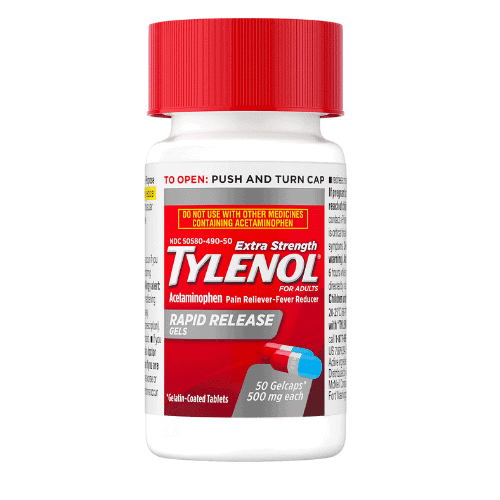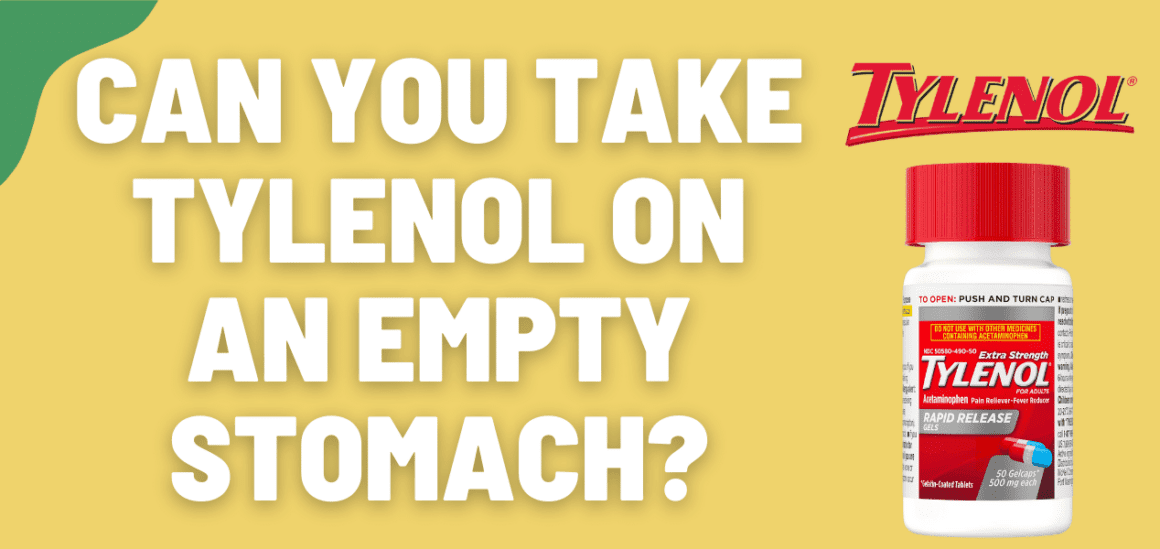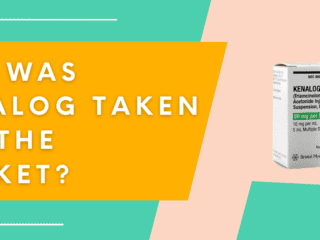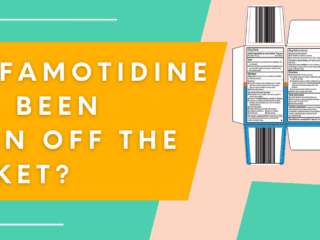Tylenol is a quick recourse to a throbbing headache or an aching body part. And while it gives effective relief, some claim to experience certain side effects like tiredness or sleepiness after taking them. But does Tylenol make you tired? Read on to learn moreâ¦
Can You Take Tylenol On An Empty Stomach?
Yes, you can. You can take Tylenol with or without having eaten a meal.
Tylenol (acetaminophen) is a pain reliever and fever reducer that is generally well-tolerated when taken as directed. It is typically recommended to take Tylenol with food or after eating to avoid stomach upset.
However, if you experience stomach upset or discomfort when taking Tylenol on a full stomach, you can try taking it on an empty stomach to see if that helps.
It is important to follow the dosing instructions on the packaging and not to exceed the recommended dose of Tylenol. If you have any questions or concerns about taking Tylenol on an empty stomach, you should talk to your doctor.
What Does Tylenol Do?

Tylenol (acetaminophen) is an over-the-counter medication belonging to types of medications called analgesics (painkillers) and antipyretics (fever reducers), which are specially designed to selectively relieve pain without blocking nerve impulses’ conduction, markedly altering sensory perception, and without directly relieving the underlying cause.
People frequently use tylenol to treat mild to severe body pain or reduce fever by helping the body eliminate excess heat. Other conditions relieved by taking tylenol include headache, muscle aches, arthritis, backache, toothache, sore throat, colds, and the flu.
Acetaminophen is typically used orally (in tablet and liquid form) but is sometimes given intravenously. As an ingredient, acetaminophen is present in many popular combination medications, such as Alka-Seltzer Plus liquid gels, Coridicin, Dayquil, Excedrin, Nyquil, Phenaphen, Robitussin Singlet, Sinutab, Vicks, and Zydone.
Tylenol doesn’t just help with physical conditions but also extends its benefits to mental health. A study from the University of British Columbia found that tylenol can greatly help people who deal with existential dread, specifically, the anxiety that comes from thinking about death. Through its effects in relieving headaches, the medication might also relieve people of plaguing thoughts about dying.
Taking Tylenol On An Empty Stomach â Is It Safe?
Is tylenol safe to take even on an empty stomach? – Yes, it is. One can take tylenol with or without having eaten a meal. Some people, as part of their regimen, take their tylenol before eating. Though you may wonder why some medications have these kinds of rules. It depends on the medication you’re taking:
Why must some medications be taken with/after a meal?
Some medicines are taken with or after eating a meal, mainly to reduce the side effects of medications like nausea or vomiting. Not only can food help relieve nausea, but it can also replace important nutrients lost after one vomits. Certain medications can also irritate the stomach, and taking them with food will reduce this effect.
Other important factors are to ensure that the medication is absorbed into the bloodstream properly and to help the body process the meal. For example, medicines for diabetes taken by mouth are usually taken around meal times to reduce blood sugar levels after eating and avoid hypoglycemia. Similarly, enzyme supplements should also be taken with food.
Why must some medications be taken on an empty stomach?
On the other hand, some medications are taken on an empty stomach or require a fasting period since some foods can interact with medication, either by altering their amount in your blood, spiking to potentially dangerous levels, or neutralizing their effects.
Food can also act as a barrier to the surface of the gut wall and prevent certain medicines from being absorbed into the bloodstream. Specific food components, such as calcium or iron, may also bind to certain medicines, reduce absorption into the bloodstream, and lead to reduced effectiveness. For example, one should take osteoporosis medicines like risedronate and alendronate on an empty stomach with water only.
Side Effects
Taking tylenol doesn’t usually cause any health problems. However, contact your doctor or pharmacist promptly if you have any of the following unusual effects.
- Itching
- Rashes
- Headache
- Nausea
- Stomach pain
- Loss of appetite
- Dark urine
- Clay-colored stools
- Jaundice
The following have also been attributed to tylenol use but rarely occur:
- Itching and swelling in the face/tongue/throat
- Severe dizziness,
- Breathing problems
Excessive tylenol intake can put a person at higher risk for liver damage, so patients should take it as their doctors prescribe. Some liquid or tablet forms of tylenol may contain sugars/aspartame, which might not be beneficial to those with diabetes and other similar conditions.
Can It Affect Psychological Health Too?
Ohio State University associate professor Baldwin Way says taking acetaminophen can make people feel less scared when considering risky activities. Another study found that acetaminophen intake could sometimes cause adverse behavioral changes like making people angry and restless, being less empathic to strangers, manipulating fundamental aspects of their personalities, and inducing impulsive and even criminal acts.
At any rate, these changes are extremely subtle, while they can also be severe in some cases. If you experience any physical or psychological side effects, you should immediately report them to your trusted medical professional for appropriate treatment.
How To Take Tylenol
The normally prescribed dosing interval for adults is to take 2 pills every 6 hours. It’s important not to exceed 6 tablets in 24 hours unless a doctor allows it. Children aged 6-11 years should take 1 caplet every 4 to 6 hours while symptoms last, without taking more than 5 in 24 hours.
If in case you miss a dose, take it as soon as you remember. If it is near the time of the next dose, skip the missed dose and avoid doubling the dose to catch up. Remember to take your next dose at the regular time.
After use, store your Tylenol medication away from light and heat at room temperature, and keep them far from your children/pet’s reach. Like ibuprofen and other medications, acetaminophen should be used within 4 to 5 years of opening, while one should use the liquid forms before its expiration date.
Do not flush medications down the toilet or pour them into a drain unless instructed. Properly dispose of this medication when it is expired or no longer needed.
â Can You Take Benadryl and Tylenol Together?
Takeaway
Tylenol is a popular analgesic/antipyretic that relieves body pain and reduces fevers. Despite its strong effects, it’s safe to be taken with or without food, so you won’t have to worry about experiencing things like nausea, vomiting, stomach problems, or other side effects.
Before taking tylenol, consult your doctor/pharmacist to discuss pre-existing medical conditions or allergies since this medication may contain ingredients that may trigger side effects. If you’re experiencing health problems from tylenol use, seek immediate medical care.









